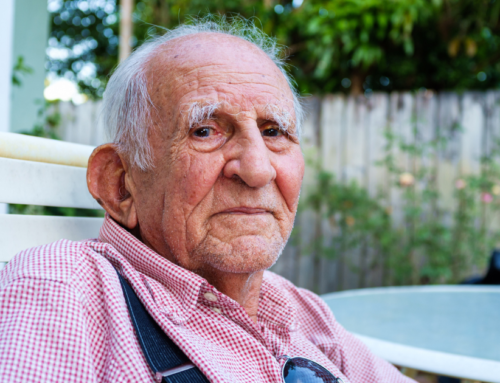Dear Family Resource,
Where do I start? Two years ago I had a busy, fulfilling life. We had retired and were looking forward to downsizing, traveling, and building a great new life together as active retirees. Then came the stroke. Jerry spent 6 weeks in a rehab center and then came home. He has no use of his right arm or leg and his speech is difficult to understand. I spend my days getting him out of bed, dressed, fed, and then either transfer him to the living room couch where he can watch TV or drive him to various appointments. He’s depressed and even though I know it’s not fair of me – I feel angry all the time. Our kids call and are supportive, but they live out of town and have their own work and families. I feel selfish for worrying about myself when it’s Jerry who’s really suffering, but I’m at the end of my rope. If I fall apart there won’t be anyone to pick up the pieces. Can you help?
~Falling to Pieces
Understanding Respite Care
Dear Falling,
I can hear the pain in your letter. You and your husband have had a life-changing event. Your husband’s stroke, you becoming his primary caregiver and the realization that your plans for retirement may not happen, would shake anyone to their core. I suggest respite ― regular breaks from the ongoing, everyday demands of being a family caregiver. If you have not yet received home health services (nursing, occupational, physical, or speech therapy) through Medicare, please check with your husband’s primary care doctor. When a therapist is in your home working with your husband you can use this time as respite, in or out of the home. Your local senior services agency can refer you to adult day programs that offer half and full day activities and programs allowing family members respite time. Transportation to and from the adult day program is often available. In addition, home care agencies, like Family Resource Home Care, are a source for respite care. You can hire a trained caregiver to help with care and provide companionship so you can take a break in or out of the home.
In addition to respite, there are dozens of services provided by various groups to help and support both care recipients and family caregivers. Check with the hospital where your husband was treated. Many offer outpatient support groups for patients, family, and family caregivers. Other caregivers will understand what you are going through and can be a source for support, ideas, and information. Often people find that their local community and senior center offer a variety of classes and support groups. You might also check with the local chapter of the American Heart Association. Most chapters offer programs for stroke patients and they would be a good resource to learn about services in your community.
Family Resource is in the senior care business and understands the importance of taking care of the caregiver to avoid burnout and illness. I highly encourage you to research support and respite options in your community. You will find you are not alone and that there is a lot of help just around the corner. Good luck.
~ Family Resource






